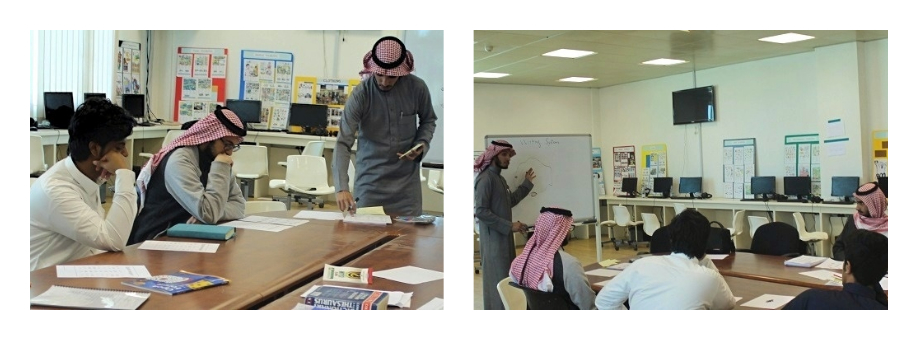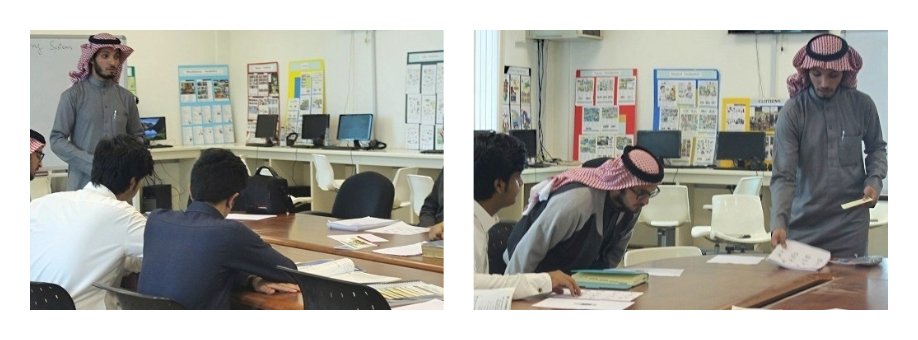Linguistics Hour: Focus on Writing Systems
On February 12th, there was a gathering of the English Club in the Language Enhancement Program (LEP) room at the main campus. The purpose of the meeting was to conduct another installment of 'Linguistics Hour'. The English Club Linguistics Hour is a continuing project to identify issues in English language learning, discuss methods for improving English language education, and to identify practical applications for the usage of English in the Kingdom of Saudi Arabia.
The speaker at the event was Faculty of Languages & Translation lecturer Faisal Alfadhil. Mr. Alfadhil has a close connection with the students in the department. After earning his master's degree at Florida Atlantic University, Mr. Alfadhil returned to the department as a lecturer and was recently appointed to the position of Director of Student Activities. Many of our students eagerly attended this presentation by our youthful, new colleague.
Director Alfadhil's presentation focused on writing systems. He began by exploring the historical origins and forms of written language in the context of an extension of spoken expression. He then reviewed the means by which orthography slowly developed over millennia and tracked these improvements through the modern era. He then explained how written language is one of humanity's most remarkable achievements, which has profoundly impacted almost every aspect of nearly every society on the planet. In the early days of human society, man was entirely dependent upon oral traditions. Written language allowed humans to create permanent records of useful information and sage advice for future generations. Historical, technical and philosophical information could be passed down without the inherent vagaries of centuries of oral storytelling. While early man's motivations to write are unclear, the importance of written language for society simply cannot be overstated.
Director Alfadhil then held a lively Q&A covering a variety of issues pertinent to writing and written language. Of particular interest was the discussion about 'Abjad' languages -- that is language containing only consonants and no vowels. Abjad languages (including Arabic) are very different from those that include vowels. Despite the fundamental difference, empirical evidence indicates that both types of languages are equally effective in all aspects of communication.
At the conclusion of Linguistics Hour, Director Alfadhil thanked all of the students and staff who participated. He further noted that 'Writing well will certainly help you succeed in your personal and professional endeavors. But also remember that writing is a precious gift from our ancestors. By writing you uphold a vital, centuries-old tradition of preserving records for those yet unborn'.
Date: 2/12/2019
Source: Faculty of Languages and Translation
Multimedia Source: Ayman Al-Faifi


